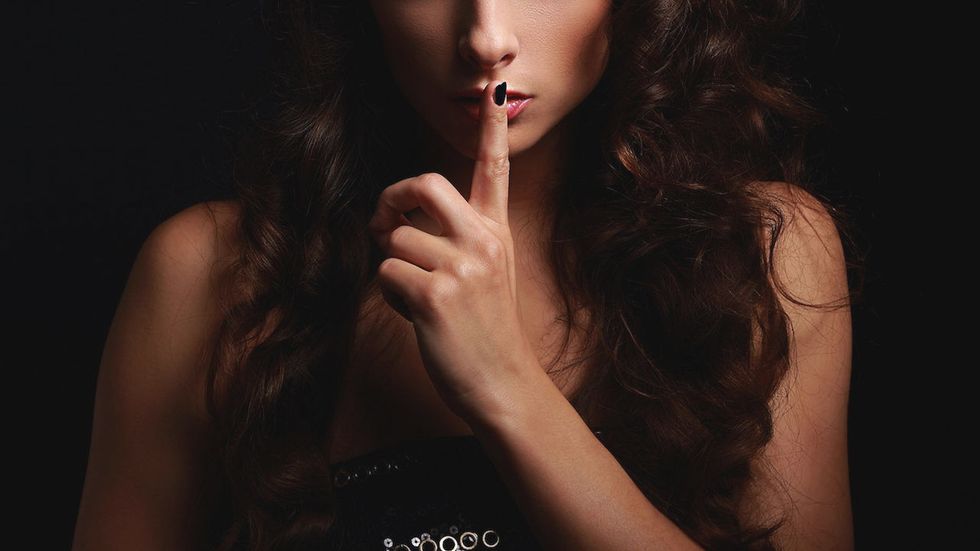I wake up in a dark room, and I immediately feel like I can throw up. It smells like Pepto Bismol, dirty mop water and someone who hasn’t showered in weeks.
I am covered up with a thick, stale, brown blanket that weighs more than I do, and I can hear the most annoying crinkling sound.
There are words written all over the walls in what looks like crayon: “I DID NOTHING TO DESERVE TO BE MOLESTED, WHY DID THIS HAPPEN,” says the royal blue crayon. The neon orange crayon written directly underneath screams back, “I don’t need medicine to make me feel normal” followed by 17 exclamation marks.
I know because over the next several days I would count them at least half a million times.
I stand up and walk to the door when I realize that I am sharing a room with two other women. One of the women is hard asleep on her bed, sprawled out as if she were making a snow angel and snoring so lightly it's almost nonexistent.
The other is sitting in the direct corner of her bed in fetal position eating out of a pack of crackers as she rocks back and forth.
“You missed meatloaf,” she said, scaring me half to death. I ignored her and opened the door into the long, white hallway.
A group of nurses hover over a computer behind bulletproof glass looking at an article just posted regarding Donald Trump. My name is called from a wooden door and a nurse leads me to a room with a psychiatrist.
After a few minutes of nodding my head in agreeance and making promises I am unsure I’ll keep, I walk to another door where I receive a handful of colorful, chalky medicine and a small, plastic cup of water.
I know where I am.
I know I will be here on lockdown for up to a week, forced to go to classes, talk to people I don’t want to and be without my friends and family.
One of the things they don’t tell you when you have bipolar disorder is that just because you are feeling better, does not mean you can come off of your medication. In fact, it means just the opposite: that you should stay on it because it is working.
Just like orange crayon lady, it bothers me that I have to take medications to be considered “normal.” That I have to hide how I am feeling in order to not make others uncomfortable. I have to hide my panic attacks and drive heave in bushes so other people do not see me “losing it.”
I have to apologize for my inconveniences when in reality, it was hard for me to even shower this morning... a shower that was for the first time in almost five days.
Patrick J. Kennedy shared with the world through his book in 2015 what he deemed as “The Common Struggle.” This struggle was the one that is associated with stigmatizing mental illness and addiction.
There are 5 million visits to the emergency room each year due to mental illness.
There are roughly 42,773 suicides every year.
There are 59.8 million visits to a physician due to diseases of the brain.
However, there is nowhere for these patients to receive the help that they deserve without a fight. These patients, these family members and these friends of ours, are forced to live life in a dark cocoon day after day until they feel strong enough to break through and take on the outside world.
We should not feel hushed about speaking up for a disease as common as mental health and addiction.
We should not feel ashamed for getting a diagnosis.
We should not feel like it is our fault.
We should not wonder if our disease is “real” or even “bad enough” to get treated.
But we do.
I am here to make a change. I vow to not only talk about this taboo subject but to scream it for those who were forced to keep quiet.
I will scream it for those afraid, for those who pretend to be OK, for those who have an addiction but cannot receive or afford help, for those who are suicidal but have nobody to talk to.
I will continue to scream until I no longer have a voice myself.
I will scream until equality is restored.








































